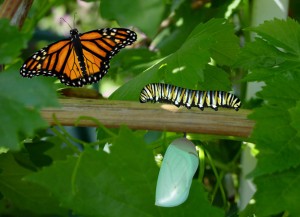SOME THOUGHTS ON ROALD HOFFMANN’S NEW PLAY
By SHELBY STEPHENSON
Roald Hoffmann: Something That Belongs to You: A Play (Dos Madres Press: 2015) settles into two memories, one in 1943, Gribniv, Ukraine, another, 1992, in the Mt. Airy section of Philadelphia. The horrific beauty of the dialogue you can imagine:
“HEATHER: She never wants to talk about it. I have a project at school, about the Holocaust …
EMILE: Who can blame her, Heather? She lost her father, her husband, her young sister. Let her be.”
I have a friend whose father and family came over from Kiev when the father was sixteen. I said, Manny, you must have family there, do you visit them?
He said, No, Hitler took care of that.
And that was the end of the conversation.
In Hoffmann’s play, the memories blur and shape like children going fast around a flagpole.
As a boy I remember seeing the KKK. Here’s a scene from Something That Belongs To You:
“FRIEDA: (Maybe a little insulted.) A shtetl? Is Philadelphia a shtetl? It was a town, 12,000 people –Ukrainians, Jews, Poles. It was a good Polish town. (She is quiet for a moment.) The Poles didn’t like us much either. When Daniel … your grandfather… went to school at the Polytechnic, the Polish students beat him with razor blades on sticks.
HEATHER: Why?
FRIEDA: Because he was Jewish; they made the Jewish boys sit in ghetto benches.
HEATHER: I don’t understand.
FRIEDA: Like blacks in the back of the bus? You’ve heard about that?
HEATHER: Yes, a long time ago, in the South.
FRIEDA: At the same time, in Poland, The Jewish students had to sit on special benches. (Bitterly.) It was the nice Polish students who made them do it. They made a law.”
Tamar, a psychologist, says: “Memories have a way of coming back.”
Something That Belongs To You is an autobiographical drama of survival. Good and evil live in the hearts of the characters and work to instruct instinct to live and forgive and to try something as impractical as Love.
Roald Hoffmann was born in 1937 in Zloczow, then Poland. I met him some years ago when he accompanied the poet A. R. Ammons to Wake Forest University. Hoffmann is a poet and a Nobel Prize winner in Chemistry. He is Frank H.T. Rhodes Professor of Humane Letters, Emeritus, Cornell University.
Shelby Stephenson
Poet Laureate of North Carolina

